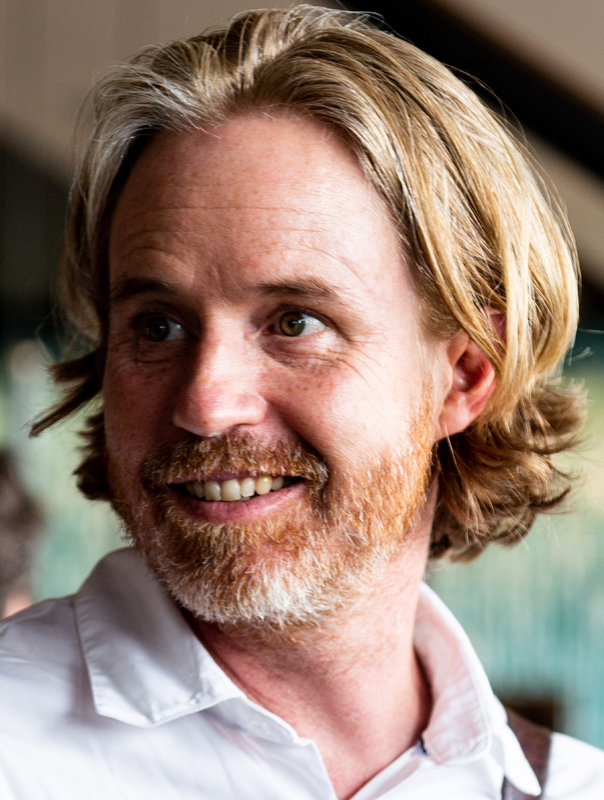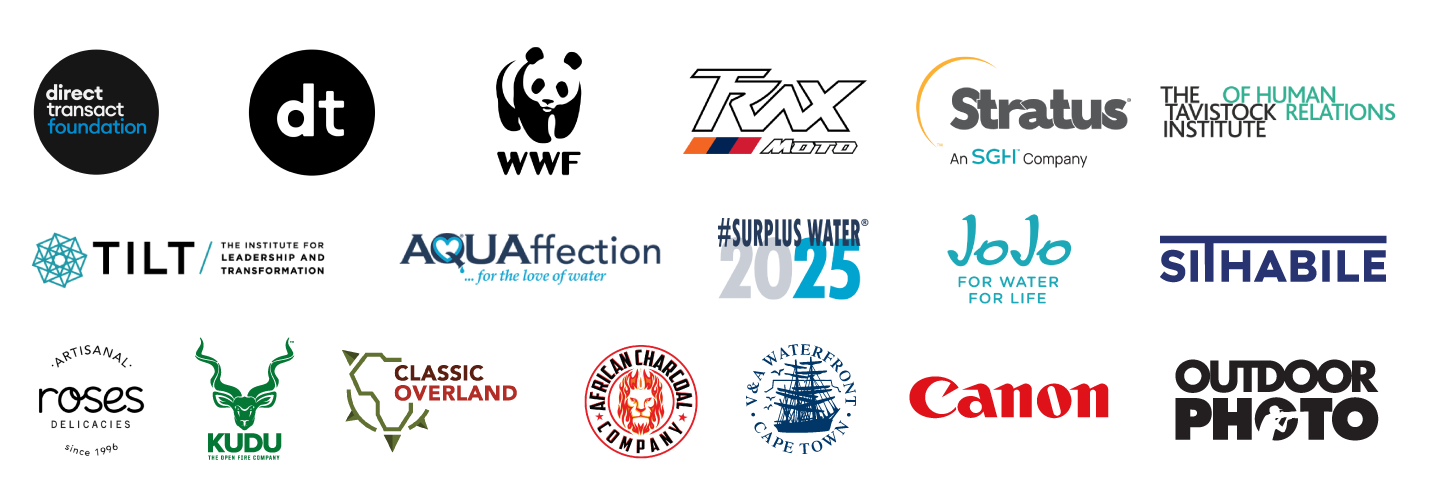|
(English Translation Below)
Dag 56: Faranah na Pita Dis pikdonker van die stof. Ek kan dofweg die vragmotors se ligte van voor af sien kom. Maar niks anders nie. De Witt is hier voor êrens. Die stof is so dig ek kan sy agterlig eers sien as ek heeltemal teenaan hom is. As ons 'n gat of sloot tref is dit verby. Stop is onmoontlik want taxis en vragmotors kom net so blind van agter af. Dan tref ons weer 'n oorlewende stuk teerpad en die stof bedaar. Die verbrokkelende pad is plek-plek nog geteer met reuse-gate, en nou en dan net heeltemal rooi poeierstof. Opgekou deur tyd en verwaarlosing. Wat beteken dit om arm te wees? Vanuit ons verwysingsraamwerk sien ons natuurlik arm mense langs die pad al van Pretoria af. Maar in Guinea lyk die mense nóg armer. En dis oor-romanties om te sê in Afrika is mense gelukkig al is hulle arm, en word rykdom met ander maatsnoere gemeet. Skielik 'n vragmotor wat stilstaan. Ek en 'n aankomende taxi swenk gelyk uit, tref gate, hoop ons wiele hou. Die vragmotor staan met sy enjin langs hom in die pad. Drie jong mans, uitgehawend, werk seker al vir dae om die ding weer aan die loop te kry. Dis die hoeveelste een vandag. Gebarsde wiele. Gebreekte asse. Enjins wat oppak. Niks romanties daaraan nie. Die oerwoud, oor berge gedrapeer, is ongerep en onbegryplik mooi. En ja, hier en daar is daar grashut-gemeenskappies wat van die aarde af leef. Maar selfs hulle wil klere en skoene en medisyne hê. 'n Nuwe selfoon-battery. Maar die meeste mense hier bly dig teen mekaar in aangelapte skerms van blou plastiekseile, gras en sinkplate. In dorpe. Waar water en kos en petrol gekoop moet word. Met geld. Ons stop, lag vir die stof op ons gesigte. Kla oor die pad en die vragmotors. Koop petrol, Coke, gebottelde water, Red Bull en Pringles wat deur daardie einste vragmotors aangery moes word. Op paaie wat vir hulle nie bloot avontuur-ritte is nie, maar hulle daaglikse werkliheid. 'n Motorfietsie met drie kinders en 'n bok kom verby. 'n Taxi wat dubbel sy volume gelaai is, plus twee seuns wat vasklou aan die pakkaas op sy dak, dryf kantel-kantel deur die draai, bly net-net op vier wiele. Nie omdat dit gerieflik of pret is nie. Maar omdat gewone mense met bittermin hulpronne moet klaarkom sonder enige infrastruktuur. Moet planne maak. Vragmotors langs die pad moet regmaak. Vanaand 'n kind met malaria by die kliniek moet kry. Via hierdie opgekoude pad. Die ekonome sal beter weet, maar wat ons hier sien is 'n armoede van totaal uitgelewer wees aan die elemente, jou eie vindingrykheid, en mekaar. Met geen infrastruktuur as vangnet of platform waarvanaf mens iets kan bou nie. 'n Onbeskermde ontbloting. Vir generasies. Day 56: Faranah to Pita It's pitch dark from the dust. I can vaguely see the lights of the oncoming trucks. But nothing else. De Witt is somewhere in front of me. The dust is so thick I can only barely see his taillight when I am right up against him. If we hit a hole or a ditch, it's over. Stopping is impossible because taxis and trucks are following just as blindly from behind. Then we hit another surviving piece of paved road, and the dust settles. The crumbling road is occasionally paved with giant potholes, and now and then just completely red powder dust. Chewed up by time and neglect. What does it mean to be poor? From our frame of reference, we've seen poor people all along the road from Pretoria, of course. But in Guinea, the people seem even poorer. And it's overly romantic to say that in Africa, people are happy even if they're poor, and wealth is measured by different standards. Suddenly, a stationary truck. An oncoming taxi and I both swerve to avoid it, hit potholes, hoping our wheels survive. The truck is parked with its engine next to it in the road. Three young men next to and under it, worn out, probably been working for days to get it running again. It's the umpteenth one today. Burst tires. Broken axles. Engines giving up. Nothing romantic about it. The jungle, draped over mountains, is untouched and unbelievably beautiful. And yes, here and there are grass hut communities living off the land. But even they want clothes and shoes and medicine. A new cellphone battery. Still, most people here live close together in makeshift shelters of blue plastic tarps, grass, and zinc plates. In towns. Where water, food, and petrol must be bought. With money. We stop, laugh about the dust on our faces. Complain about the road and the trucks. Buy petrol, Coke, bottled water, Red Bull, and Pringles that have been delivered here by those very trucks. On roads that are not just adventure rides for them, but their daily reality. A motorcycle with three children and a goat passes by. A taxi, loaded twice its volume, plus two boys clinging to the stuff on its roof, floats through the turn, barely staying on four wheels. Not because it's convenient or fun. But because ordinary people have to make do with minimal resources without any infrastructure. Have to make plans. Fix trucks along the road. Get a child with malaria to the clinic tonight. Via this chewed-up road. Economists may know better, but what we see here is a poverty of being entirely exposed to the elements, your own ingenuity, and each other. With no infrastructure as a safety net or platform from which to build something. An unprotected state of exposure. For generations.
0 Comments
Leave a Reply. |
AuthorThis blog was written by Dr. Jean Cooper. For my work as organisational psychologist, adventurer and writer, go to www.jeanhenrycooper.com |




